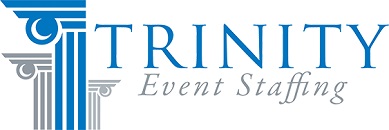Need Wait Staff and Bar Staff in Dallas Texas?
There are an increasing number of laws and regulatory constraints in Dallas Fort Worth and Texas that regulate bartenders, bar staff, waiters and servers as well as bar and beverage services that both sell and serve alcohol. The regulations most called for and pervasive for bar staff, catering staff and waiters are their TABC seller-server certifications. Restaurants, bars and caterers that are selling and serving alcohol in a bar, at an events venue or a private party are closely-regulated in Texas. To serve alcohol, bartender staff and wait staff are licensed by the Texas Alcohol and Beverage Commission by undergoing a 4 hour seller server course. In comparison, Oklahoma only requires bar staff to register and pay a fee. Certification records are public and can be accessed via the TABC records portal on the TABC website.
Waiter staffing agency for events serving alcohol
A tangible benefit of businesses having bartender and wait staff training and TABC certified is a reduction in liquor liability insurance premiums paid by companies selling alcoholic beverages. To sell alcohol, a bar, venue, caterer, or staffing company must possess the proper TABC alcohol seller licensing. In the events industry, a catering liquor license is most often utilized to offer bar and beverage services to clients in places other than permanent restaurant and bar establishments. Although not regulated by the TABC, liquor liability insurance is a form of protection for those companies who carry and operate with a TABC liquor license.
Need banquet waiters and party bartenders to cover your bases
Altogether, working closely with the TABC office and possessing trained TABC bartenders and waitstaff remains essential. Also, having the proper the alcohol buyer and seller permits and carrying liquor liability insurance coverage helps to reduce a company’s risk. It will not however completely indemnify a company against exposure to litigation. This is both from TABC agency actions and civil actions arising from the dram shop laws, which cover alcohol-related deaths and damages.






